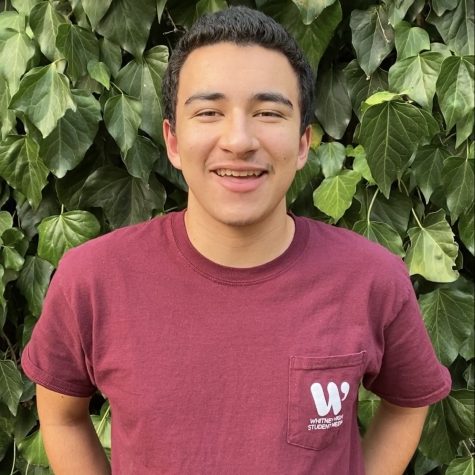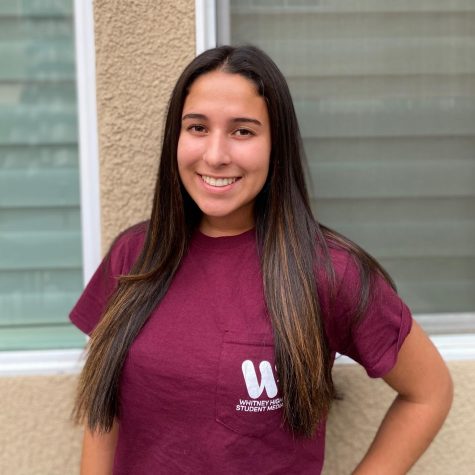Diversify Our RUSD initiative aims to impact district toward anti-racist initiatives
In light of the recent Black Lives Matter movements, people all across the country have been inspired to participate in new forms of activism to spread awareness and educate their communities about racism. Hoping to educate those in our community, a group of students started their own group to achieve this goal, first by partnering with the organization Diversify our Narrative, but are now trying to make their group more local.
Diversify our Narrative is an organization that is advocating for schools to adequately educate students about race and racism in schools. Diversity Our RUSD is a smaller part of that organization, focused on achieving that goal in the Rocklin Unified School district.
Chynna Arceno, Veda Bommana, Ellie Hockerson-Brun, Daya Khunkhun, Erin Mondell, Ethan Pellegrini and Muskaan Wadhava were members of the Diversify our RUSD branch.
“We all found out about it in our own ways and joined it. Veda, Ellie, Muskaan and I were the original group. Ellie and I were the district leads, and Veda and Muskaan were the social media managers. At that time it was only the four of us, and now we have Erin, Ethan and [Chynna Arceno],” Khunkun said.
A major focus of the initiative is making sure that when the texts are incorporated into lessons for the school, students are able to think for themselves.
“Our goal is to try and push as many neutral types of documents that just state facts. We want students to come up with their own conclusions by themselves just by reading the facts. We’re just out here trying to educate our students; this is not trying to push anyone in a political direction, but hopefully through education, people will be able to come to their own conclusions about history and about this community. We do want to focus on race, but we could also get into classism, feminism, and so forth,” Khunkhun said.
Encouraging students to educate themselves not only on diversity but on other important topics is also something that they are trying to focus on.
“There are so many people just taking in information from their parents or generational ideas at such a shallow level that don’t try and go to search for their own truth. Sure, a lot of what you’ll read is bias, but you can find some pretty neutral information on the internet. Self-education is so freeing,” Mondell said.
In the future, the team is hoping to convince the school board to mandate a book — or books — into the curriculum.
“The likelihood of our district adopting a new book and paying for all the copies is slim. I feel like that would be a good next step, but we would also have to find a way to make it as cost efficient as possible. If we are trying to negotiate with the school board to incorpart texts into the curriculum, some parents may not even be comfortable with it, so they may not think the cost is worthwhile,” Khunkhun said.
Currently, the group is researching different books, essays and different texts that could possibly be added to school curriculum.
The original goal was talking with the school board, but the group has instead shifted its focus to creating a strong foundation with teachers.
“For this semester we’re going to be working with the individual teachers. Although it may seem small, it’s a step in the right direction. The teachers are a lot easier to negotiate with and are generally more open to adding new texts in,” Khunkhun said.
Not only is Mrs. Leah Seabrook among one of the teachers who are open to adding new texts in, she has already taken steps to make sure she is incorporating documents and lessons that are giving students more insight on history.
“The way that we’ve told students how history happened is sometimes intended to make them patriotic and not necessarily well informed, and I think that in a modern world, having people leave my room uninformed is malpractice. Laying the foundation for inclusion is really important to me, so them taking that initiative makes me so proud,” Seabrook said.
Although Sebrook also teaches AP World History, her Dual Enrollment US History class gives her more freedom to teach lessons that aren’t required.
“Because I took Dual Enrollment US History, which is through Sierra [College], I learned a little bit more than those who are in AP U.S. History or regular history, just because they are mandated by the school district. But when you take a class through Sierra, my instructor, Mrs. Seabrook, was able to give us more insight on things than if it were a regular or AP class,” Khunkhun said.
AP Literature teacher Mr. Patrick Gale believes that the current curriculum could be better at including a wider variety of voices and perspectives. But he also acknowledges he could do a better job on being more educated on different perspectives.
“There definitely could be some places where we could get better at being significantly more inclusive. Not only including things just to include them, but making sure that as an educator, I’m more well read,” Gale said.
Teachers like Gale have seen that teaching and educating students about different perspectives can leave a lasting impact on students. Gale experienced this while teaching the book “Night” by Elie Wiesel’s, giving students a perspective on what experiences during the Holocaust were like.
“The more we can possibly expose all students to diverse perspectives, the more likely students are to actually recognize how someone might feel, especially what they feel like as a disenfranchised or an outsider,” Gale said.
According to Seabrook, learning about a variety of perspectives is beneficial to students.
I feel like a lot of us here live in our own bubble and don’t have a worldview: just thinking about what’s right in front of us,
— Erin Mondell
“It’s important for students to learn the history of people who may not look like them or share the same beliefs, and to also learn about people who do look like them. I think if we want to move forward with a better society, that’s important. Expanding what I do in my classes and including that type of curriculum across the board is only a benefit to students,” Seabrook said.
Including a wide variety of texts by people of color that talk about racism is what the group is planning to do. Members feel this is especially important in Rocklin.
“I feel like a lot of us here live in our own bubble and don’t have a worldview: just thinking about what’s right in front of us. I know this is very generalizing, but just from my personal experiences, there are so many people with implicit biases and I feel like with social activism it helps educate people and helps raise awareness,” Mondell said.
Currently, the Diversify our RUSD group is moving away from the Diversify our Narrative organization and partnering instead with an organization called GENup. The organization advocates for local and state-wide policy change and because it gives the team more freedom to choose what they want to do, they feel it is a better fit for achieving their goals.
Their Instagram can be seen here.
by DYLAN DE VALK & SOFIA McMASTER











